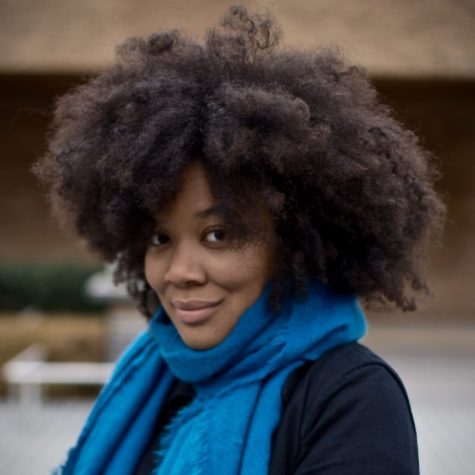Panel 2
JEUNES, COMMUNAUTÉS ET APPARTENANCESi la pérennité des communautés repose bien souvent sur leurs plus jeunes membres, l’appartenance communautaire est tout autant cruciale pour le bien-être et la construction identitaire des jeunes eux-mêmes. De ce fait, les acteurs et institutions étatiques sont amenés à prendre en compte ces affiliations lorsque sont mis en doute les besoins, les intérêts ou les droits des jeunes. Par ailleurs, ces derniers peuvent jouer un rôle actif en choisissant ou en créant leurs propres communautés – par exemple, à travers les médias sociaux – et ces multiples affiliations seront décisives pour de nombreux aspects de leur vie actuelle et future. Ce thème invite à explorer les rapports des jeunes à l’égard des communautés dans lesquelles ils grandissent, et l’éventail de voix possibles pour composer avec ces relations. |
YOUTH, COMMUNITY AND BELONGINGThe strength and sustainability of communities often depend on their youngest members. The reverse can also be true: for young people, community membership is significant for their sense of identity and well-being. State institutions and actors may be called upon to take community affiliation into account when the needs, interests or rights of children are at stake. Young people are also active in creating meaningful communities for themselves – for example, through social media, or on the street – and their multiple affiliations and relationships play significant roles in their lives. This theme invites exploration of the relationships of young people to the communities in which they grow up, and the range of potential responses to those relationships. |
Annamaria Colombo, « On est comme une famille ». Groupe de pairs et sentiment d’appartenance dans les trajectoires de sortie de la rue des jeunes.
Résumé
A partir des résultats d’une recherche portant sur les sorties de la rue des jeunes à Montréal, cette contribution vise à mettre en lumière la nature paradoxale des relations des jeunes avec leurs pairs dans leur expérience de la rue. Si elle comporte des risques, cette expérience est aussi l’occasion de créer des liens, notamment avec les pairs, qui peuvent être porteurs de reconnaissance. Or, on peut se poser la question si ces dynamiques d’appartenance ne risquent pas de maintenir ou renforcer des dynamiques d’enfermement dans la rue et de destruction de soi. Cette communication mettra en lumière le fait que si ces risques d’enfermement existent et ne doivent pas être négligés, les relations avec les pairs peuvent jouer un rôle socialisateur important, dont il s’agit de tenir compte dans l’accompagnement ces jeunes vers une place sociale alternative à la rue.
Conférencière
 Annamaria Colombo est professeure et chercheure à la Haute école de travail social Fribourg, membre de la Haute école spécialisée de Suisse occidentale (HES-SO). Elle est titulaire d’une maîtrise en travail social de l’Université de Fribourg et d’un doctorat en études urbaines de l’Université du Québec à Montréal. Les champs de recherche qu’elle privilégie sont les marginalités urbaines et juvéniles ainsi que la cohabitation dans l’espace public avec les populations marginalisées.
Annamaria Colombo est professeure et chercheure à la Haute école de travail social Fribourg, membre de la Haute école spécialisée de Suisse occidentale (HES-SO). Elle est titulaire d’une maîtrise en travail social de l’Université de Fribourg et d’un doctorat en études urbaines de l’Université du Québec à Montréal. Les champs de recherche qu’elle privilégie sont les marginalités urbaines et juvéniles ainsi que la cohabitation dans l’espace public avec les populations marginalisées.
VISUALISER SA PRÉSENTATION ICI
Christiane Guay, Une gouvernance innue de protection de la jeunesse pour protéger et développer l’identité des jeunes
Résumé
On sait, au moins depuis les années 1980, que les jeunes autochtones sont surreprésentés dans les systèmes provinciaux de protection de la jeunesse y compris au Québec. De nombreuses recherches ont mis au jour les conséquences néfastes de l’application indifférenciée des systèmes aux Peuples autochtones, notamment la perte de l’identité culturelle. En effet, même si la loi stipule que toute intervention doit prendre en considération les caractéristiques des communautés autochtones et la préservation de l’identité culturelle des jeunes, la loi n’est toujours pas adaptée à la réalité autochtone.
C’est dans ce contexte que les Innus d’Uashat mak Mani-Utenam ont entrepris depuis quelques années une démarche de recherche en vue développer une gouvernance innue de protection de la jeunesse. Après avoir présenté cette démarche, nous verrons en quoi la mise en place d’une gouvernance innue favorise le développement d’approches communautaires originales qui permettent d’assurer non seulement la sécurité et le développement des jeunes autochtones, mais aussi la préservation de leur identité et appartenance communautaire.
Conférencière
 Christiane Guay est titulaire d’un doctorat en sciences sociales appliquées de l’Université du Québec en Outaouais, professeure agrégée au sein du même établissement et travailleuse sociale. Elle possède plus d’une vingtaine d’années d’expérience dans le domaine de l’intervention, de la supervision clinique, du développement de programmes et de la gestion des services sociaux. Ses intérêts de recherche gravitent autour du renouvellement des pratiques d’intervention sociale en contexte de diversité culturelle. Depuis quelques années, elle s’intéresse notamment aux réalités des familles autochtones qui se retrouvent assujetties aux régimes de protection de la jeunesse, et plus particulièrement à l’enjeu de la reconnaissance, par ces régimes, des conceptions singulières de la famille autochtone et des pratiques culturelles d’éducation, de protection, d’adoption coutumière et de guérison sur le territoire.
Christiane Guay est titulaire d’un doctorat en sciences sociales appliquées de l’Université du Québec en Outaouais, professeure agrégée au sein du même établissement et travailleuse sociale. Elle possède plus d’une vingtaine d’années d’expérience dans le domaine de l’intervention, de la supervision clinique, du développement de programmes et de la gestion des services sociaux. Ses intérêts de recherche gravitent autour du renouvellement des pratiques d’intervention sociale en contexte de diversité culturelle. Depuis quelques années, elle s’intéresse notamment aux réalités des familles autochtones qui se retrouvent assujetties aux régimes de protection de la jeunesse, et plus particulièrement à l’enjeu de la reconnaissance, par ces régimes, des conceptions singulières de la famille autochtone et des pratiques culturelles d’éducation, de protection, d’adoption coutumière et de guérison sur le territoire.
VISUALISER SA PRÉSENTATION ICI
Lincoln Hill, A Chicago-specific exploration of social and emotional learning initiatives
Resume
Due to the large number of immigrant children and families within its borders as well as its sanctuary jurisdiction, the city of Chicago serves as an ideal case study towards investigating specialized services for one of its most vulnerable subpopulations of children, primarily the development needs of its immigrant children. The desired outcome for this non-exhaustive research brief is to provide empirical evidence and best practices for Chicago community and school specialists seeking to support the social and emotional needs of their newcomer student population.
With immigrant residents representing approximately 21% of the city’s population, Chicago sought to position itself as a “sanctuary” city in 2006 by enacting its Welcoming City Ordinance. The ordinance seeks to distinguish Chicago’s legal procedures around immigration from federal immigration laws and offers protections to undocumented residents not convicted of serious crimes or those with criminal warrants. Still, a 2017 Executive Order issued to the Attorney General and the Department of Homeland Security sought to remove protections for undocumented communities by withholding federal grants deemed necessary for law enforcement from sanctuary jurisdictions. Challenging the Attorney General’s power to impose such an order, a Chicago federal appeals court in April of 2018 upheld a nationwide injunction preventing the order’s enforcement thus upholding Chicago’s status as a sanctuary jurisdiction.
Chicago has incorporated other measures to adopt policies to protect the dignities of its newcomer population. While the U.S. remains the only country to not ratify the UN Convention on the Rights of the Child, the City of Chicago passed a resolution adopting the treaty in 2009. Further, in August 2017, Illinois Governor Bruce Rauner signed the Illinois TRUST Act (SB 31) in Chicago’s Little Village neighborhood, a community with the largest number of undocumented immigrants (20,000) in the city (Tsao, 2014). The Act limits the scope of state and local law enforcement’s role in enforcing federal immigration laws and seeks to build trust between undocumented communities and local law enforcement. The bill currently offers the country’s strongest state-level due process protections for undocumented immigrants. Additionally, Chicago Public Schools (CPS) leadership frequently responds to the political and cultural anxieties of its stakeholders, particularly those derived from undocumented immigrant families such as offering open statements referencing immigration enforcement, DACA, and reaffirming itself as a welcoming district.
For all the notable policy initiatives Chicago has made for immigrant families and children, little is known about how the city and its schools implement these policies into actions that best support the wellbeing of its newcomer students. This brief seeks to further investigate the social and emotional learning school policies and services available to newcomer students. This outcome was achieved by: synthesizing research about this population of students (including unaccompanied immigrant children, immigrant children regardless of legal status, and refugee students); documenting best practices for social and emotional learning; and illustrating CPS policies that both hinder and promote the specific social and emotional needs of Chicago’s newcomers. This brief also provides examples of schools and school districts catering to the special social and emotional needs of their newcomer students.
Speaker

Lincoln received her undergraduate degree in Psychology from Boston University and her masters degree in Counseling from Northwestern University in 2015. Currently, Lincoln is a doctoral candidate in Counseling Psychology at Loyola University Chicago where she has studied issues pertaining to racial/ethnic minority college student development and mental health, multiculturalism, and the acculturation experiences of immigrants. She has worked in a mental health human rights clinic, volunteered with Heartland Alliance, served as a restorative practice coach within Chicago Public Schools, and has served on a variety of diversity related committees in Loyola and as a member of the Committee for the Advancement of Racial and Ethnic Diversity for the American Psychological Association for Graduate Students. Lincoln continues her development as culturally humble researcher and clinician by working within Loyola University Chicago School of Law’s Center for the Human Rights of Children around the intersections of educational access, mental wellness, and social justice.
Elizabeth Fast, Restoring our Roots: Land-based programming and urban Indigenous youth
Resume
My research looks at the different ways that Indigenous youth who have been disconnected from their roots by processes of colonisation and urbanisation find belonging and re-connection to their cultures. The “Restoring our Roots” land-based retreat was part of a research project aimed at increasing opportunities for urban Indigenous youth to learn about their cultures and histories. The retreat included teachings about ceremonies, a medicine walk, arts-based workshops, pow-wow dancing, storytelling, and sharing circles, among other activities. Preliminary findings speak to how valuable the experience of learning from the land was for the participants and many of the youth spoke about having always wanted opportunities to spend time learning from Elders, participating in ceremonies and sharing with other Indigenous youth in a space where they did not have to explain the complexity of their identity from a perceived expert in a classroom setting. Some of the youth, who identified as Two-Spirit or LGBTQ, attended the retreat and shared how important it was to have a safe space, which felt inclusive regarding diverse gender roles. Others spoke about a “jumping off point” where they now feel more comfortable asking family or community members for other teachings, or feel they are ready to go deeper into re-connecting to their roots.
Speaker
 Elizabeth is Métis from St. François-Xavier, Manitoba. She has a PhD in Social Work from McGill University (2014) and was hired as a Strategic Hire for Indigenous Youth at Concordia University in 2015 as an Assistant Professor in the Department of Applied Human Sciences. From 2016-2017 Elizabeth served as the Special Advisor to the Provost on Indigenous Directions at Concordia. Before returning to school, Elizabeth worked with youth that were transitioning out of care from the child welfare system and as a social worker. Elizabeth is currently the principal investigator on research grant that seeks to understand how “legacy education” can be used to strengthen cultural pride among urban Indigenous youth and is leading an action research project on improving child welfare services for Indigenous families in Montreal in partnership with the Native Women’s Shelter of Montreal.
Elizabeth is Métis from St. François-Xavier, Manitoba. She has a PhD in Social Work from McGill University (2014) and was hired as a Strategic Hire for Indigenous Youth at Concordia University in 2015 as an Assistant Professor in the Department of Applied Human Sciences. From 2016-2017 Elizabeth served as the Special Advisor to the Provost on Indigenous Directions at Concordia. Before returning to school, Elizabeth worked with youth that were transitioning out of care from the child welfare system and as a social worker. Elizabeth is currently the principal investigator on research grant that seeks to understand how “legacy education” can be used to strengthen cultural pride among urban Indigenous youth and is leading an action research project on improving child welfare services for Indigenous families in Montreal in partnership with the Native Women’s Shelter of Montreal.
Modérateur – Moderator
angela campbell

Professor Campbell researches and teaches in the areas of family law, health law, criminal law, successions law and feminist legal studies. She also served as Associate Dean of Graduate Studies in Law. Previously she has served as Director of the McGill Institute of Comparative Law and a convener of the McGill Research Group on Health and Law.
Professor Campbell earned her B.A. (Hons), B.C.L. and LL.B. degrees from McGill University. She completed her LL.M. at Harvard Law School as a Frank Knox fellow and Langdon H. Gammon fellow. Prior to joining the Faculty of Law at McGill, she clerked for The Honourable Mr. Justice Frank Iacobucci at the Supreme Court of Canada, and taught at the University of Ottawa’s Faculty of Law (Common Law).
Professor Campbell’s research as been funded by the Social Science and Humanities Research Council of Canada, La Fondation du Barreau du Quebec, La Chambre des Notaires du Québec, and the Foundation for Legal Research.
Ce contenu a été mis à jour le 6 juin 2019 à 9 h 50 min.
